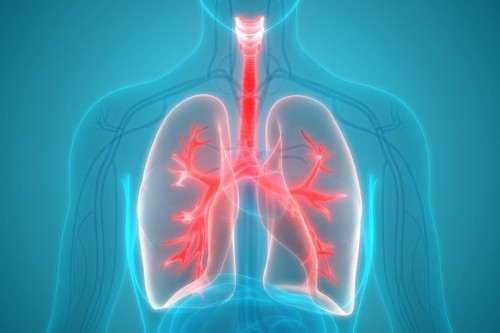
Asthma
Author: Adriane Gianlupi, MD
What is Asthma?
Asthma is a chronic, inflammatory disease which makes the airways in the lungs irritated and swollen (inflamed) which causes the airways to narrow leading to shortness of breath and wheezing. Other symptoms consist of coughing and chest tightness. Flare ups (asthma exacerbations) occur when airways, that are already inflamed chronically, react to a trigger. During flare ups, airways continued to swell and produce extra mucus, which further narrows the airways causing bronchospasm and wheezing. Asthma flare ups can be dangerous even deadly. Uncontrolled asthma may cause permanent damage to your lungs over time. Therefore, it is very important to diagnose asthma early and treat appropriately.
By treating the inflammation, respiratory symptoms and asthma flare ups can be prevented allowing patients to live a normal life, such as being able to:
- participate in sports and other activities without having asthma symptoms
- sleep through the night without symptoms
- NOT miss school or work because of asthma
- decrease or avoid asthma flare ups requiring urgent care, ER visits, or hospitalizations
Know your Triggers
Knowing your triggers such as allergens and irritants and avoiding or minimizing the exposure to them helps to keep asthma under control. Examples of allergens are dust mites, cats, dogs, mold, and pollen. Irritants are usually tobacco smoke (including secondhand smoke), smoke from fireplaces or other sources of wood smoke, chemical fumes, air pollution, and strong smells such as perfumes, air fresheners, candles, and cleaning products. Other triggers are viral infections such as COVID 19 and Influenza, cold air or hot and humid air, stress, among others.
Medications
Medications are the most important tool for controlling asthma. Some medications are taking daily to control inflammation in your lungs. They are called long term controller medications. Others help relieve symptoms of a flare up and are called quick relief medications or rescue inhalers (bronchodilators). It is important to know that quick relief inhalers such as Albuterol do not treat the underlying cause of asthma which is the inflammation.
There are many treatments for asthma including steroid inhalers and nebulizers, bronchodilators, systemic steroids, and, more recently, biologic medications that target specific inflammatory pathways that trigger asthma. Asthma treatments can now be personalized, based on what type of asthma each person has, such as allergic asthma, eosinophilic asthma, exercise induced asthma and/or cough variant asthma.
You and your health care team, which normally includes your primary care provider and a pulmonologist (lung doctor), will develop a treatment plan to control your asthma. Nowadays a great deal can be done to manage your asthma and improve your quality of life. A patient with asthma, under proper care, should be able to live a normal life, engage in all activities of daily living, and be able to practice sports.

Related Articles

Pulmonary
Screening for Lung Cancer
It is recommended that patients with a significant history of smoking should undergo a low dose...

Pulmonary
Nasal Allergies and Irritants
Nasal allergies, also called allergic rhinitis, are extremely common and may cause significant...

Pulmonary
Post Coronavirus Syndrome: Long-COVID or Long haulers
"Long-COVID", also referred to as post-acute COVID-19, chronic COVID-19, post-COVID syndrome, or...

Women's Health
Have You Completed a Breast Cancer Risk Assessment?
OakLeaf Clinics has invested in software to identify and manage patients at high risk of developing...
